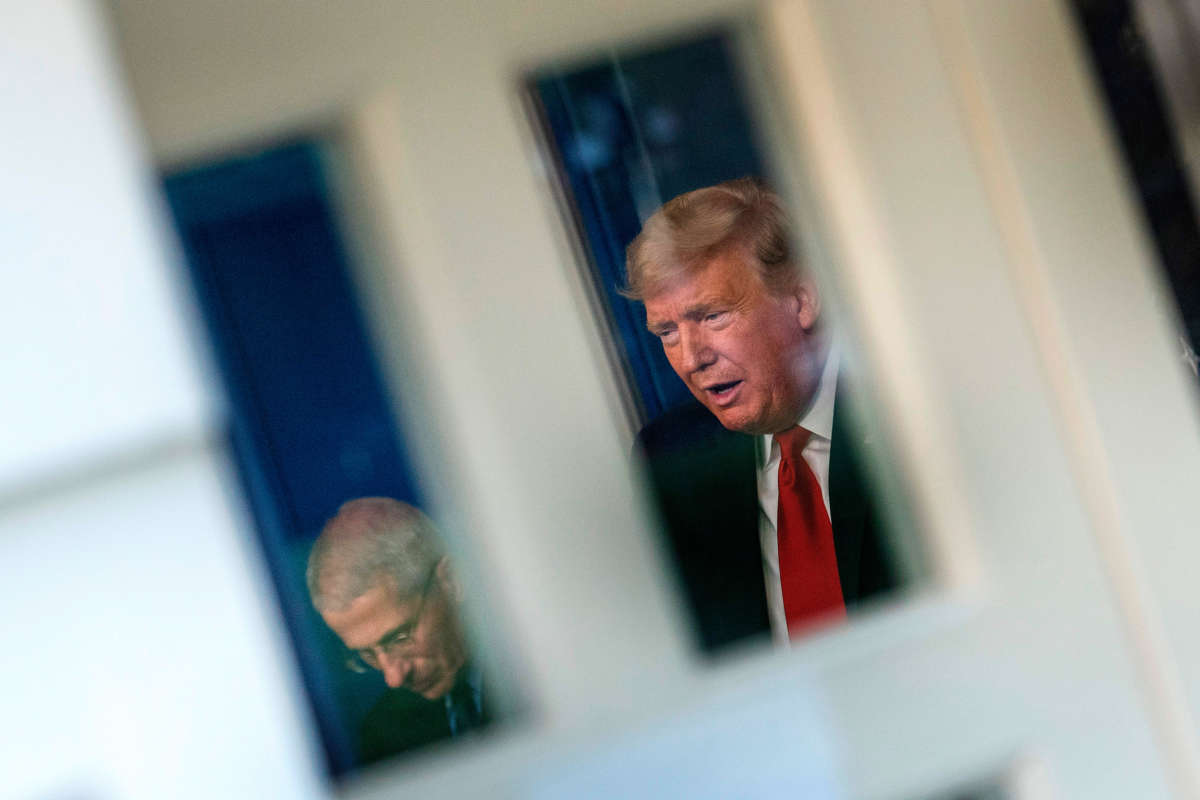Truthout is a vital news source and a living history of political struggle. If you think our work is valuable, support us with a donation of any size.
President Trump is reportedly planning to issue a call to reopen the United States economy, even as a number of prominent health experts — including some on his own coronavirus task force team — are expressing alarm that a premature return to normalcy could create serious setbacks in the nation’s attempts to contain the virus.
Sources with knowledge of the president’s conversations spoke to The Washington Post about his thinking on the matter, noting that, in phone calls with advisers from outside the White House, Trump has suggested he has a strong desire to reopen the nation’s businesses by May 1 or sooner.
People familiar with these discussions say Trump’s push to reopen businesses is motivated by political concerns of the commander-in-chief. The president is worried, these sources told The Washington Post, that bad economic news — including rising unemployment rates and a looming recession — could severely curtail his reelection chances in the fall.
A bad economy could mean trouble for the incumbent president. While Trump has polled poorly since his inauguration whenever respondents have been asked to evaluate his work in office in a general sense, he’s consistently received better polling responses when it comes to the economy. It was widely believed, before the COVID-19 pandemic took shape, that Trump would push himself as the best candidate on the issue during his campaign.
The president has spoken publicly about his wishes for a fast reopening of the nation’s economy.
“Hopefully we’re going to be opening up — you can call it ‘opening’ — very, very, very, very soon, I hope,” Trump said during a press briefing on Thursday. “We’re at the top of the hill, pretty sure we’re at the top of the hill.”
However, the president’s own health experts, including coronavirus task force member Dr. Anthony Fauci, director of the National Institute of Allergy and Infectious Diseases, believe the approach proposed by Trump could result in serious repercussions for the nation.
Fauci, during a CNN interview this week, said he wants to see “a clear indication” that the infection rate in the U.S. is “very clearly and strongly going in the right direction” before the economy is reopened.
“The virus kind of decides whether or not it’s going to be appropriate to open or not,” Fauci said on Friday morning. He added that “prematurely” opening businesses and other places that have shuttered due to social distancing could result in the country winding up “back in the same situation” that we presently find ourselves in.
In other words, opening the economy too soon could prolong the need for social distancing measures in the long run. It could also result in a higher number of infections, and with that a higher death count from the disease.
As of Friday morning at 10:30 a.m. Eastern Time, there were more than 466,000 confirmed cases of coronavirus in the United States, with 16,703 deaths documented due to the disease, according to Johns Hopkins University of Medicine.
Media that fights fascism
Truthout is funded almost entirely by readers — that’s why we can speak truth to power and cut against the mainstream narrative. But independent journalists at Truthout face mounting political repression under Trump.
We rely on your support to survive McCarthyist censorship. Please make a tax-deductible one-time or monthly donation.
